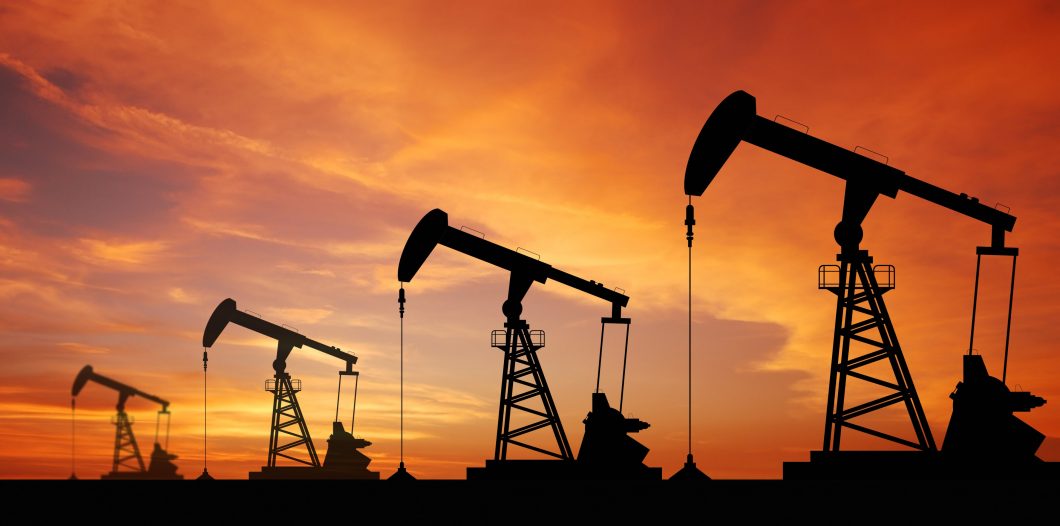Sackett v. EPA draws a clear line for what the government can regulate under the Clean Water Act.
The Power of Power
Several years ago, as I drove across the flat West Texas scrubland of the Permian Basin, I pointed out to the kids in the back seat flashy new billboards advertising “Fireproof Workwear!” The kids were not particularly impressed, but I was—it was a tangible, visceral, clue to the fracking revolution happening a mile or two under our seats. Just as I had been nonplussed by talk of oil-shocks and gas lines when I was their age, they only murkily understood the geopolitical implications of the glistening new oil rigs and how the revolution they represented would substantially affect their personal lives.
Daniel Yergin makes it clear in The New Map. With galloping, data-laden prose (his trademark since Commanding Heights), Yergin paints a sweeping mural of the modern political landscape that is defined principally by the shifting sources of energy that power the modern world. This is a book about the power of power: how states peddle clout within the shifting mosaic of hydrocarbon production, and how they jockey for leverage in an era that demonizes fossil fuels while consuming record amounts of the stuff.
Politics and Power
While The New Map is definitively about gas (especially so), oil, cars, turbines, and such—the engines of modern life—it is more deeply an aperçu into liberty itself. The real engine of human affairs, one concludes, is the irrepressible creativity of liberated spirits. Freed from the shackles of arbitrary, coercive politics, it finds astonishing ways of making better lives out of thin air. In this sense, The New Map is a fundamentally positive, fundamentally humanist book.
It is this humanist subtext that makes the book such a pleasure to read—the personal granularity of it all reminds us that individuals, not “trends,” make the world go ‘round. Behind the broad, seemingly inevitable shifts in global patterns are individual, relatable personalities. The father of modern fracking, we learn, was the indefatigable George Mitchell, son of an impoverished Greek goatherd who emigrated to America seeking opportunity and found it (along with a new name). Or take the case of “Red” Whittaker, a robotics expert behind the driverless-vehicle revolution, who was approached by a disguised Larry Page (of Google) to help get Larry’s personal robot experiment to work. Or consider Ali Al-Naimi, the Saudi oil minister whose life mirrors the meteoric rise of the desert kingdom itself: born a Bedouin nomad, he started as an office boy for Saudi Aramco, ultimately becoming CEO, the first Saudi to hold the title.
Personalities acknowledged, Yergin is still a macro-thinker: he attempts to discern the general from the particular, to map, as it were, the broad outlines of our current global landscape. He spends a considerable portion of the book assessing the tortured relations amongst our Mideast cousins—both petro-state actors with a penchant for dictatorial repression like Saudi Arabia, Iran, and Syria, as well as the more amorphous networks of actors like ISIS and Hezbollah. A vivid vignette is of an ISIS leader trampling upon the Sykes-Picot line, declaring it obsolete in light of the “new Caliphate.” Indeed, the “export of the Iranian Revolution throughout the region” occupies a good portion of the book, the destabilization overwhelming much of the prior Mideast order, with hydrocarbons helping fuel all sides’ ambitions and finance their ghastlier activities. Yet Yergin is quick to show how the unexpected shifts in gas production worldwide (especially in the United States) have shaken the monopoly on fuel prices and to some extent, the monopoly on violence itself.
This seismic shift is tied to the explosion in natural gas production and consumption, in which “methane molecules jostle and compete with each other on a global market.” From the Groningen gas fields in the North Sea, to Mexico (which despite enormous proven reserves, currently imports 65 percent of its gas from the U.S.), to Venezuela (which has, through predictable mismanagement, squandered the world’s largest proven oil fields), to Russia and Germany which are currently in fraught negotiations over the last stretch of the NordStream2 pipeline, natural gas has opened another channel in a once predictable energy field. The new reality means, among other things, that Iran cannot negotiate against its nuclear program as it once could, that Vladimir Putin must be more cautious in his dealings with Europe, and that the United States has more flexibility to chart policy. Both Russia and China, which reject the “universal values and norms” propounded by the West, are themselves constrained—a “relationship that was once based on Marx and Lenin is now grounded in oil and gas.”
Just how much can the rich, urbanized West insist that the “rest” (especially in China and India) be condemned to the abject poverty that comes from being isolated from reliable energy?
All of this politics is terribly interesting, of course, but Yergin adds a second compelling political layer to his narrative: the politics of environmentalism. Illustrations of the machinations of environmental controls abound, demonstrating how power can cut in multiple directions. New York, for instance, forbids fracking in one of the most promising gas fields on the Eastern seaboard, even when New Yorkers could benefit immensely from the relatively clean heating fuel and power generation it would derive. (Indeed, new rules in Westchester County now prevent new homes and businesses from even having gas connections made during construction.) Continental was criminally indicted by the Department of Justice for its drilling in the Bakken oil field of North Dakota because of the death of one bird. Propaganda teams under the Venezuelan dictatorship of the Maduro regime teamed up with eco-groups in the United States to promote fears about fracking—not for sake of the environment, but to attempt to stop competition from natural gas that was sapping the oil prices the regime relied upon. Environmental and chemical companies (a classic “Baptists & Bootleggers” pair) colluded in Washington D.C. to stifle natural gas exports from new terminals in Texas in order to artificially reduce production and protect chemical companies’ market share. And so on.
This (perhaps cherry-picked) background serves Yergin’s larger purpose, which seems to be to cast the idea of political power in a jaundiced, or at least cautious, light. The New Map comes across primarily as a subtle invective against those who would presume to dictate, and one of the most potent antidotes against this tyrannical bent, it suggests, is to democratize the sources of energy. Power to the people, indeed.
How to be a Humanitarian
This brings us, inevitably, to the question of global warming (or “catastrophe” as is now au courant). Yergin is no “denier” on the topic of climate change, nor a Pollyanna on anthropogenic emissions. Nonetheless, he is palpably guarded about the growing movement toward global emissions regulations. While he hews to the prevailing consensus about the need to keep temperatures from rising two degrees Celsius above preindustrial levels, he evinces a skepticism about who is best positioned to dictate which kinds of actions, taken by whom, and to what extent such actions will best address the world’s most headlined commons-problem.
To this end, Yergin spends a good deal of time shedding cold, hard light on the much-vaunted phrase “energy transition.” In this context, it is understood as the directed transformation from carbon-dense fuels to “renewables” with zero, or “net-zero” emissions (an important distinction that shields considerable dissimulation). Yergin helps us understand the magnitude of such a proposition—while he is clearly not against the aspirational goal, he brings much-needed perspective to the often breathless, usually naïve conversation over energy and its malcontents. The sheer enormity of the current (and growing) demand for power, makes supposed “green victories” like new windfarms and solar fields seem rather forlorn. China, for instance, brings three new coal-fired power plants online every month. These facts merely highlight a humanist and ethical dilemma at the heart of the transition movement: just how much can the rich, urbanized West insist that the “rest” (especially in China and India) be condemned to the abject poverty that comes from being isolated from reliable energy?
This is one of the most powerfully compelling segments of The New Map. In a discussion of the “forgotten three billion,” Yergin points out that the headlong rush to slow the climate “catastrophe” will leave the world’s most vulnerable behind. “We are told we have to move on beyond natural gas to the next thing,” says Timipre Sylva, Nigeria’s minister of petroleum. “The reality is that we have to deal with energy poverty in Africa before discussing things like renewables and electric cars.” The World Health Organization states publicly that the “greatest environmental health risk today” is not, as you might assume, nebulous long-term climate change, but the three billion people annually exposed to poor fuels burnt indoors (primarily charcoal and cow dung) which kill some four million people a year. Small, cheap, portable natural gas stoves would do more for humanity (and the planet) than all the Paris Accords combined. Calls by Western governments and the Davos elite for draconian cuts to “dirty energy,” in addition to ringing rather hypocritical, can seem positively cruel. Dismissing as “dirty energy” what many in the developing world say is the “clean energy” desperately needed for healthier and happier lives simply cannot stand on humanitarian grounds. Better answers are going to be needed than a simple “off” switch, Yergin tells us.
The New Map isn’t perfect, of course. Yergin’s analyses and addendums about the effects of COVID-19, for instance, are insightful yet feel a bit forced. One senses they stopped the presses as the pandemic unfolded to be sure to add something, anything about the world’s top story to a book that was 99 percent complete. On the other hand, what about COVID-19 doesn’t seem forced these days? And in some ways, the open-ended tone of Yergin’s COVID analyses fits the larger scheme of his work—he rightly points out that the “one ineluctable truth is that oil is necessary for COVID recovery.” Whether we like it or not, modern life is built on the easy, affordable, and reliable energy access provided by hydrocarbons. The shifting priorities of a global pandemic have merely highlighted the degree to which this is true.
Yergin has written a timely, lucid book that needs to be read widely. It is a refreshingly optimistic work in the tradition of Julian Simon, Matthew Ridley, and Stephen Pinker. It represents the best of a liberal humanist approach: distrustful of dirigiste elites, confident in the latent wisdom of decent people interacting through unfettered markets. And as I cross the Permian Basin again today, gas prices lower than my first trip, with my now twelve-year-old son glued to The New Map audiobook alongside me, I’m buoyed by the sense that the future, complicated as it is likely to be, is bright.



